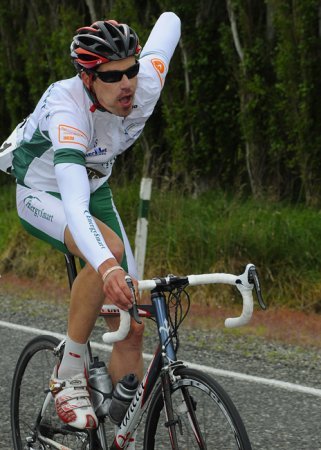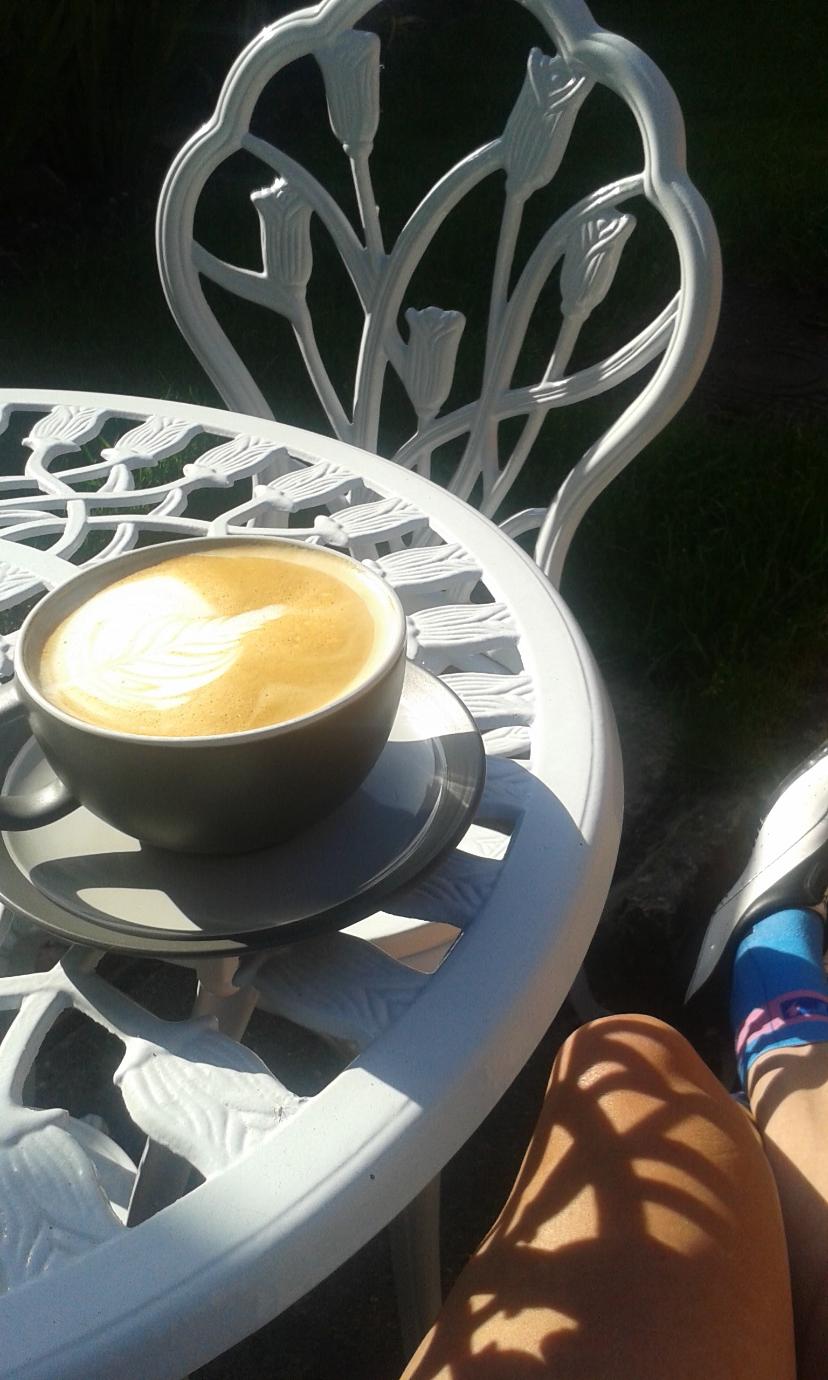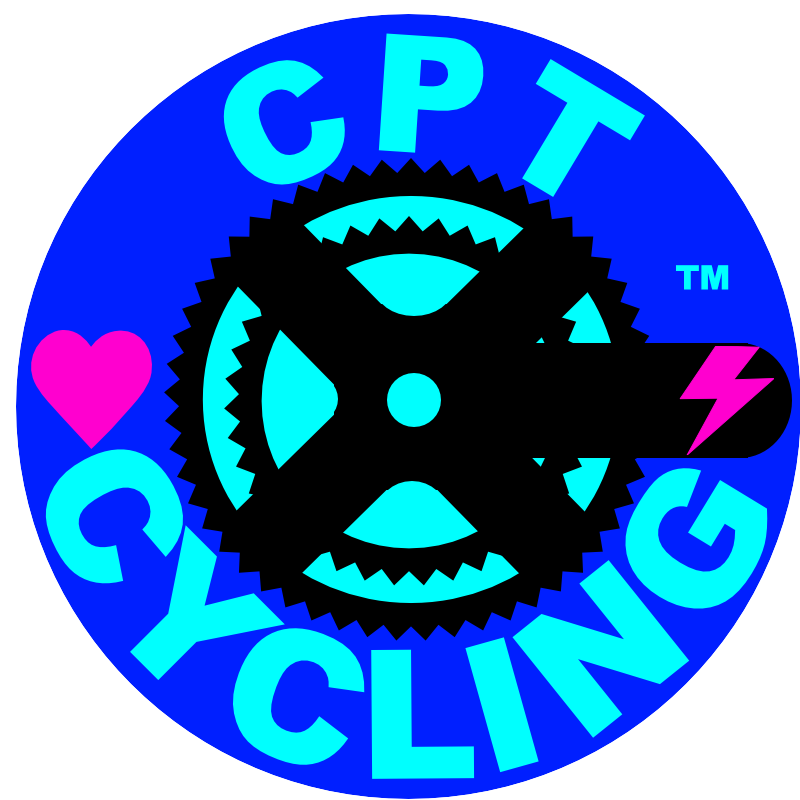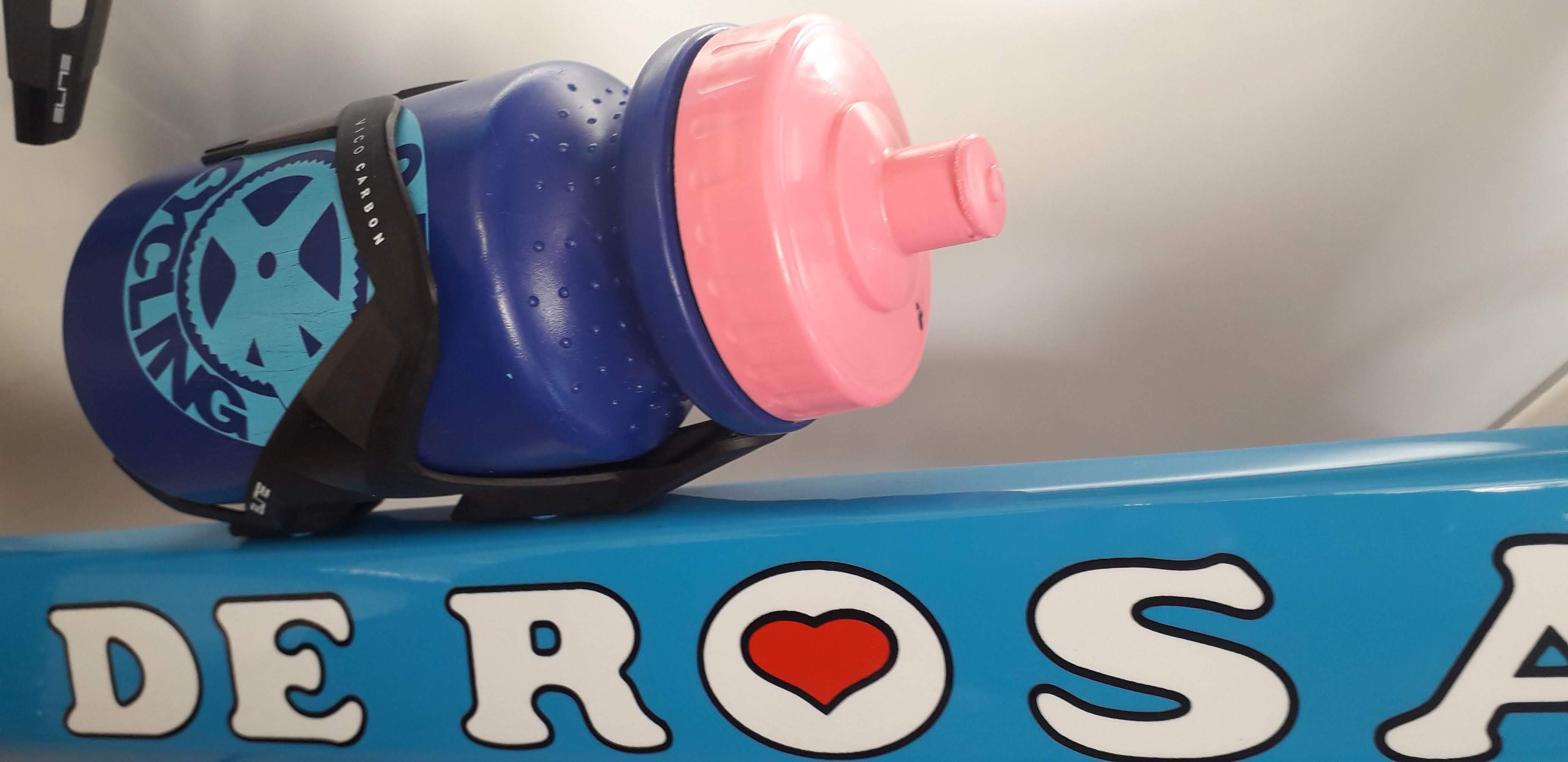Get the best from cycling nutrition products

Coach Richard taking a feed during the 2008 Tour of Southland
7th June 2016, By Richard Rollinson
Want to avoid “bonking”? Do you struggle to digest food whilst racing? See how to cut through the confusion of diets and supplements.
There are some initial factors that you can use to figure out what you are dealing with and then take action from there.
Some factors to consider are:
- Racing or training?
- Length of ride or race
- Intensity of ride or race
- Time of day for riding and eating
- Before, during and after ride
- Age of rider
- Fitness and experience
- Tried and tested methods (by yourself and others)
- Use of supplements and stimulants
Let’s have a look at the first factor: are you racing or training. On the day, this can make a big difference. This can make the difference between feeling strong or weak, throwing up or not and even hitting a wall (bonking - this is when you are not fuelled enough, the cycling equivalent of running a tank of petrol dry). How you fuel your body in training is a lot different from racing. Even if you are on big efforts in training, it is still easier to digest food than in a race, where the intensity is much greater, so in turn your body needs to adapt to both.
Racing
During a longer race however you may be able to eat more of what you do during a training ride (compared to a short race). For example, bars are the best for this type of riding. During training, try lots of different bars until you find one that works best for you. Always go for a bar with high carbohydrate, low protein, but with some protein content. This means that you will have more energy to replace the lost calories and you have something to counter muscle fatigue at the same time.
The second factor we are looking at is length of ride or race. Firstly, if you are racing for anything under 1 hour, then you should not be eating during the race. Because of the short length of this type of racing, in turn there is higher intensity. This means that there is no room for anything sitting in the stomach. This not only goes for food, but sports drinks with high sugar content too.
Make sure that you stop your food intake at least 1 hour 30 min before racing. The exception being sports gels, however these must be consumed with lots of water to avoid dehydration. See directions on the packaging as to how much water to drink for each gel
Timing is key
The time of day for training has to be considered when considering nutritional needs. The best time of day to train for a lot of riders is in the morning before breakfast. If doing this, and especially before a big training session or long road race, make sure you fuel up well the night before. On the morning of a long race, breakfast will have to be consumed. Make sure it is high in carbohydrate. Do not fuel up too much at this point. It is then best to eat something during the race, if needed.
During a long race there are a few things you will need. Firstly water and sports drink (both of them and equal amounts). Depending on your personal rate of dehydration, make sure you have enough. A template method is 1 litre per hour, but this is different for a variety of conditions and individuals. As stated before, you will need bars and also some nutritionally well balanced food as well if you are going for even longer. You will also need some simple sugar rich food and drinks. These are your ‘get out of jail card’ if you have not fuelled up enough during the race. This means gels and soft drinks. These are all more than easy to digest while racing.
However if you find yourself in this situation, start consuming some bars as well, as the simple sugars will only last for so long. This goes back the theory of having dessert with a meal. Having a good balance of low GI and high GI gives you the best of both energy systems. After riding, it is best to consume foods with a higher protein content, to repair tissue for the next day.
Supplements
As far as supplements go, the protein ones are best after riding. Be careful if taking vitamin and mineral supplements. Only take these if there are significant nutritional gaps in your diet. If there are, then you should consider adjusting your current diet or making changes to your lifestyle before considering vitamin or mineral supplements. With your diet you can find a much better natural nutritional balance. There is a danger of overdosing with supplements.
Stimulants

Being aware of when caffeine stimulation peaks and falls away can help you to find your best focus
Stimulants are different to nutrients and should therefore be treated differently. They can be used before a short race or before and halfway through a long race. Some common forms of stimulants come in the form of energy drinks (taurine, guarana) and coke or coffee (caffeine). It has been proven that stimulants can alter mental performance but not physical performance. So they are recommended as a physiological boost. Caffeine is also a natural dietetic, so it also has an effect on metabolism.
Caffeine works best after 1 hour of consuming, and then dips slowly in effect within the next 3 hours. If using supplements and stimulants, there are rules regarding how much you can use, and be aware that some are banned stimulants. So do your research if in doubt.
Fitness and experience, as well as age are all big contributing factors towards metabolism. So take these into consideration.
Take on board other riders tried and tested methods of nutrition. But to find what works best for your own body, you have to go through the experience of creating some of your own tried and tested nutrition methods.
What is CPT Cycling?
Custom training plans with a 360º approach to your unique physiology and goals with actionable feedback to help you become a faster cyclist, explained simply with a personal touch from an expert cycling coach.



